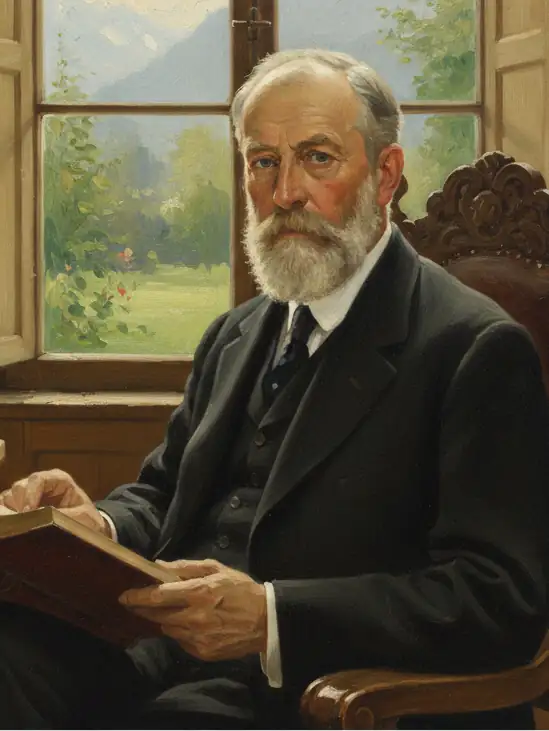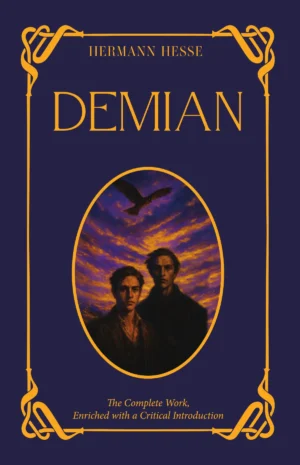
Hermann Hesse
Hermann Hesse (1877–1962) was a German-born Swiss novelist, poet, and essayist known for his explorations of self-discovery, spirituality, and the conflict between the individual and society. Born in Calw, Germany, into a religious family, he struggled with conventional education and religious expectations from an early age.
His early novels, such as Peter Camenzind (1904) and Beneath the Wheel (1906), brought him early fame. After a journey to India in 1911 and personal crises during World War I, Hesse turned increasingly inward, influenced by Eastern philosophy and Jungian psychology. This shift is reflected in Demian (1919), Siddhartha (1922), and Steppenwolf (1927)—novels that explore the inner life and spiritual awakening of their protagonists.
Hesse became a Swiss citizen in 1923 and lived much of his life in Montagnola. His final major work, The Glass Bead Game (1943), earned him the Nobel Prize in Literature in 1946. He died in 1962, leaving behind a body of work that continues to resonate with readers seeking depth, meaning, and inner freedom.
Books by Hermann Hesse
-
Sale!

Demian
₹47.00 – ₹189.00Price range: ₹47.00 through ₹189.00 Select options This product has multiple variants. The options may be chosen on the product page -
Sale!

Steppenwolf
₹85.00 – ₹237.00Price range: ₹85.00 through ₹237.00 Select options This product has multiple variants. The options may be chosen on the product page
